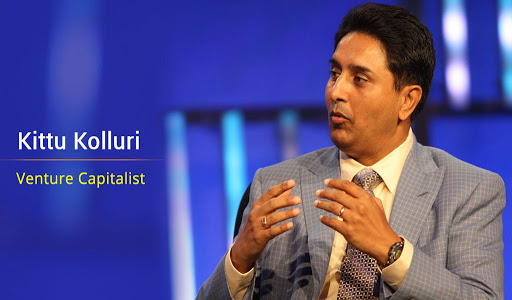The Never Ending Venture Capital Question
Face it that when the time of commitment arrives, a good idea, even a great one seems nothing without a practical back end. At this point, all the budding entrepreneurs being unable to fund their start-ups or obtain capital from family members and friends opt for the popular options available in the market: angel investments, crowdfunding or VCs (Venture Capitalists).
Here, first of all, angel investors being very hard to find becomes the primary problem and when it comes to crowdfunding, it not only includes the platform fees but also isn’t very effective for non-consumer/B2C services.
Interestingly, though, at .05 percent, VC funding is still the third most popular funding technique around the world
Considering all, VC funding becomes the most logical choice for the young and spirited entrepreneurs. Venture Capital refers to a private or institutional investment planned for various stages of development for early. It is the capital invested in businesses that are small or are exiting at an initial stage with potential to grow. “Seed funding allows startups to hire more employees, grow the company, and build the product.
But also, seed funding is often the first major vote of confidence for a startup from the venture capitalists. So, having a right VC partner can enable the startups in recruitment, closing their first few customers, building business relationship, etc. Also, experienced VCs have often seen multiple startups transform into large successful companies, so they can also offer valuable advice to the startup”, said Kittu Kolluri, Founder, Neotribe.
Why should a VC fund your Startup?
VCs like to see whether the idea for a startup is impactful enough to change the world in its own way. An idea remains just an idea if the team acting behind it isn’t strong. The Neotribe founder said, “VCs are primarily investing in the team that can transform the idea into a successful business. Teams should have the right background. Also, some VCs invest into a particular sector, some focus on B2B startups, some on B2C, etc. So, there has to be a right fit between the VC and startup.”

Until when can you get the Funding?
Venture capital is available to fund a startup right from a very nascent stage to all the way when they become a public company. There might be just a couple of founders with an idea without any product, or they may have a thriving global business, but, a strong startup can always find venture capital if it’s idea is worth investing in.
The Question that still Remains
But, no matter how much fruitful or productive VC funding looks like, to go this route, startups must partake in a tedious and long process that doesn't guarantee success everytime. Added to this, at the end of the process, most of the startups get rejected by VC investors: According to Fundable, a Venture Capital and Private Equity company, only .05 percent of startups are funded this way, compared to the 57 percent that are self-funded and the 38 percent who receive funding from family and friends. Interestingly, though, at .05 percent, VC funding is still the third most popular funding technique around the world.
Why should a VC fund your Startup?
VCs like to see whether the idea for a startup is impactful enough to change the world in its own way. An idea remains just an idea if the team acting behind it isn’t strong. The Neotribe founder said, “VCs are primarily investing in the team that can transform the idea into a successful business. Teams should have the right background. Also, some VCs invest into a particular sector, some focus on B2B startups, some on B2C, etc. So, there has to be a right fit between the VC and startup.”

Until when can you get the Funding?
Venture capital is available to fund a startup right from a very nascent stage to all the way when they become a public company. There might be just a couple of founders with an idea without any product, or they may have a thriving global business, but, a strong startup can always find venture capital if it’s idea is worth investing in.
The Question that still Remains
But, no matter how much fruitful or productive VC funding looks like, to go this route, startups must partake in a tedious and long process that doesn't guarantee success everytime. Added to this, at the end of the process, most of the startups get rejected by VC investors: According to Fundable, a Venture Capital and Private Equity company, only .05 percent of startups are funded this way, compared to the 57 percent that are self-funded and the 38 percent who receive funding from family and friends. Interestingly, though, at .05 percent, VC funding is still the third most popular funding technique around the world.
